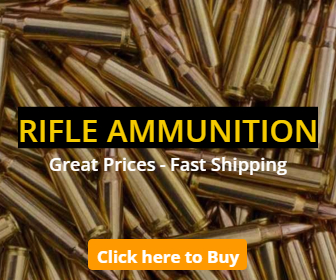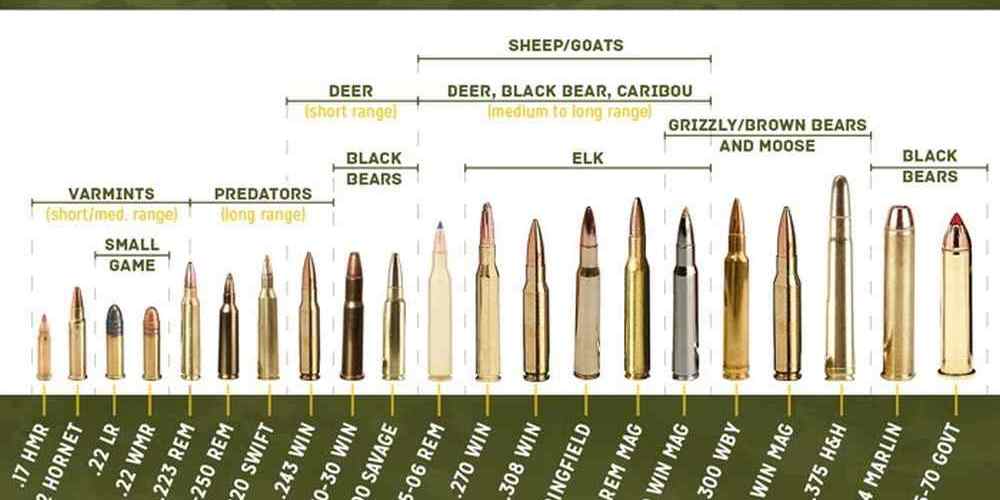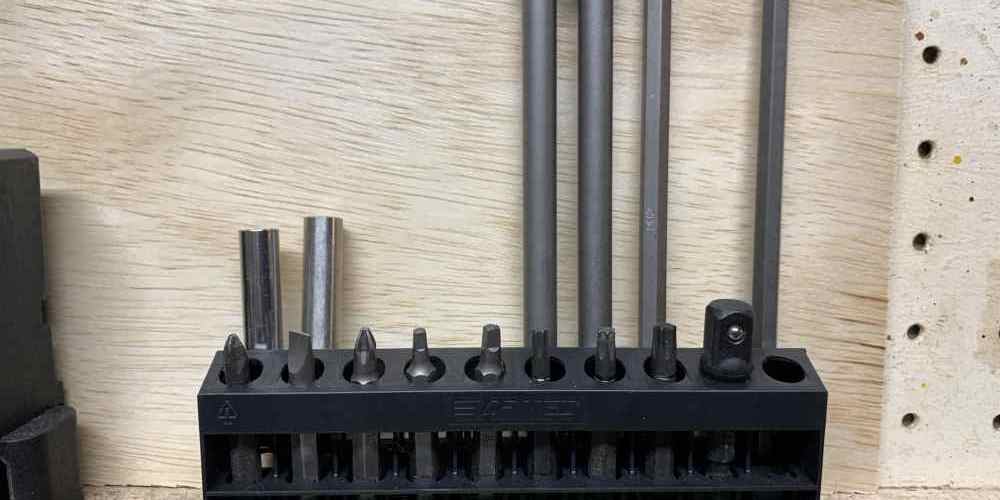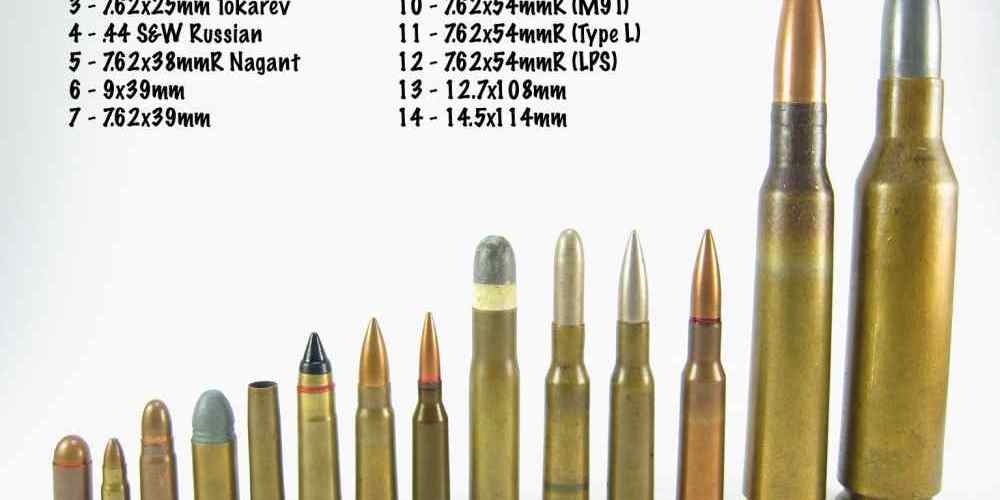“Barrel Length and Ammo: Precision Performance for Your Firearm”
Benefits of Using Different Barrel Lengths for Various Types of Ammo
When it comes to shooting rifles, one of the key factors that can greatly impact the performance of your firearm is the barrel length. The length of the barrel can affect the velocity, accuracy, and overall effectiveness of the ammunition you are using. By understanding how different barrel lengths interact with various types of ammo, you can tailor your rifle to optimize its performance for your specific needs.
One of the main benefits of using different barrel lengths for various types of ammo is the ability to maximize the velocity of the bullet. In general, longer barrels tend to produce higher velocities due to the increased time the bullet has to accelerate before exiting the barrel. This can be particularly beneficial when using high-powered ammunition that requires a higher velocity to achieve optimal performance. By using a longer barrel with these types of ammo, you can ensure that the bullet reaches its target with maximum force and accuracy.
On the other hand, shorter barrels can be more advantageous when using lighter ammunition that does not require as much velocity to be effective. Shorter barrels are often more maneuverable and easier to handle, making them ideal for situations where quick shots are necessary. Additionally, shorter barrels can be more compact and lightweight, making them a popular choice for hunting and tactical applications where mobility is key.
Another benefit of using different barrel lengths for various types of ammo is the ability to improve accuracy. The length of the barrel can affect the stability and trajectory of the bullet as it travels downrange. Longer barrels tend to provide better accuracy by reducing muzzle flip and recoil, resulting in a smoother and more consistent shot. This can be especially important when shooting at long distances or in challenging conditions where precision is crucial.
Shorter barrels, on the other hand, can offer increased maneuverability and faster target acquisition, making them well-suited for close-quarters combat or fast-paced shooting scenarios. While shorter barrels may sacrifice some accuracy compared to longer barrels, they can still be highly effective in the right circumstances.
In addition to velocity and accuracy, the length of the barrel can also impact the overall performance and reliability of your rifle. Different types of ammo may perform better or worse depending on the barrel length, so it is important to experiment with different combinations to find the optimal setup for your specific needs. By tailoring your rifle to work with the specific types of ammo you plan to use, you can ensure that your firearm operates at its best and delivers consistent results every time you pull the trigger.
In conclusion, the barrel length of your rifle plays a crucial role in determining the performance of your firearm when using different types of ammo. By understanding how barrel length interacts with velocity, accuracy, and overall effectiveness, you can tailor your rifle to optimize its performance for your specific needs. Whether you are looking to maximize velocity, improve accuracy, or enhance reliability, experimenting with different barrel lengths and types of ammo can help you find the perfect combination for your shooting style and preferences.
How Barrel Length Impacts Accuracy and Velocity of Different Ammunition
When it comes to shooting accuracy and velocity, the length of your rifle’s barrel plays a crucial role in determining how well your ammunition performs. Understanding how barrel length impacts the performance of different types of ammunition can help you tailor your shooting experience to suit your needs and preferences.
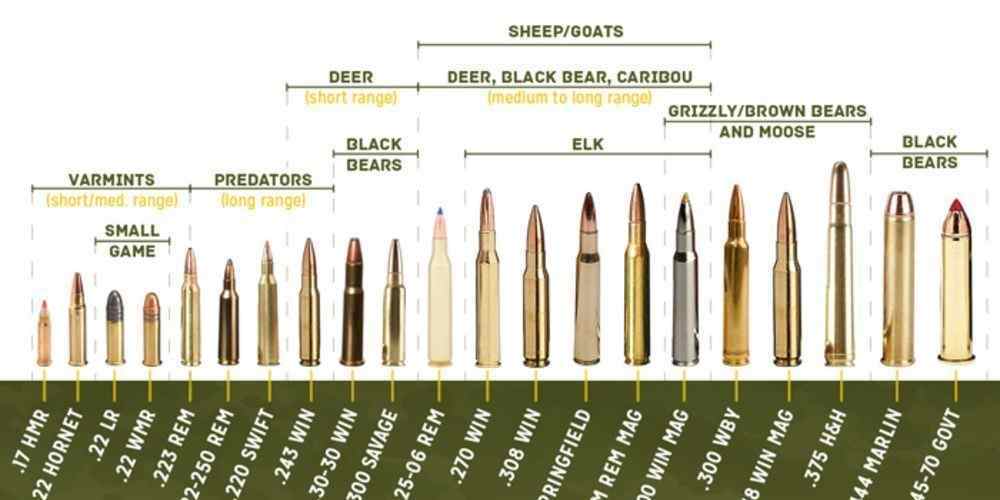
One of the key ways in which barrel length affects ammunition performance is through the amount of time that the bullet spends in the barrel. A longer barrel allows for a longer acceleration time, which can result in higher muzzle velocities and improved accuracy. On the other hand, a shorter barrel may not provide enough time for the bullet to reach its maximum velocity, leading to decreased accuracy and performance.
In general, longer barrels are better suited for high-velocity ammunition, such as those used for long-range shooting or hunting. The increased acceleration time provided by a longer barrel allows these types of ammunition to reach their maximum velocity, resulting in improved accuracy and performance. Shorter barrels, on the other hand, are better suited for lower-velocity ammunition, such as those used for close-range shooting or self-defense.
It’s important to note that the relationship between barrel length and ammunition performance is not always straightforward. Factors such as the type of ammunition, the weight of the bullet, and the rifling of the barrel can all impact how well a particular type of ammunition performs in a given barrel length. Experimenting with different types of ammunition and barrel lengths can help you find the perfect combination for your shooting needs.
In addition to velocity and accuracy, barrel length can also impact the recoil and muzzle blast of your rifle. A longer barrel typically results in less felt recoil and muzzle blast, as the additional length helps to absorb and dissipate the energy generated by the firing of the bullet. This can make shooting more comfortable and enjoyable, especially for those who are sensitive to recoil or noise.
On the other hand, a shorter barrel may produce more felt recoil and muzzle blast, as there is less material to absorb and dissipate the energy generated by the firing of the bullet. This can make shooting more challenging and less enjoyable, especially for those who are not accustomed to the increased recoil and noise associated with shorter barrels.
Ultimately, the best barrel length for your rifle will depend on your shooting preferences and the type of ammunition you plan to use. If you are looking for maximum accuracy and velocity, a longer barrel may be the way to go. If you are more concerned with comfort and ease of shooting, a shorter barrel may be a better option.
Experimenting with different barrel lengths and types of ammunition can help you find the perfect combination for your shooting needs. Whether you are a seasoned marksman or a novice shooter, understanding how barrel length impacts the performance of different types of ammunition can help you make informed decisions about your shooting setup. By tailoring your rifle ammunition to your firearm, you can ensure that you are getting the best possible performance out of your equipment and enjoy a more satisfying shooting experience.
Choosing the Right Barrel Length for Your Specific Ammunition Needs
When it comes to choosing the right ammunition for your rifle, there are a few key factors to consider. One of the most important factors is the barrel length of your firearm. The barrel length of a rifle can have a significant impact on the performance of the ammunition you use. In this article, we will discuss how barrel length affects ammunition performance and how you can tailor your ammunition choices to your specific firearm.
Barrel length plays a crucial role in determining the velocity and accuracy of a bullet. A longer barrel typically results in higher muzzle velocity, which can lead to better long-range accuracy. This is because a longer barrel allows more time for the gunpowder to burn and propel the bullet forward. On the other hand, a shorter barrel may result in lower muzzle velocity and decreased accuracy, especially at longer distances.
When choosing ammunition for your rifle, it is important to consider the barrel length of your firearm. Different types of ammunition perform best with specific barrel lengths. For example, a high-velocity round may perform better in a longer barrel, while a low-velocity round may be more suited for a shorter barrel. By matching the right ammunition to your firearm’s barrel length, you can optimize performance and accuracy.
Another factor to consider when choosing ammunition for your rifle is the twist rate of the barrel. The twist rate refers to how many inches it takes for the rifling in the barrel to make one complete revolution. The twist rate of a barrel can affect the stability and accuracy of a bullet as it travels down the barrel. Different types of ammunition may perform better with specific twist rates, so it is important to consider this factor when selecting ammunition for your rifle.
In addition to barrel length and twist rate, the type of ammunition you choose can also impact the performance of your rifle. There are many different types of rifle ammunition available, each with its own unique characteristics and performance capabilities. Some ammunition is designed for long-range accuracy, while others are better suited for close-range shooting. By understanding the specific needs of your firearm and the type of shooting you will be doing, you can choose the right ammunition to maximize performance.
When selecting ammunition for your rifle, it is important to consider the intended use of the firearm. Are you planning on hunting, target shooting, or self-defense? Each of these activities may require different types of ammunition to achieve optimal performance. For example, a hunter may prefer a high-velocity round for long-range shooting, while a target shooter may opt for a lower-velocity round for improved accuracy.
In conclusion, choosing the right ammunition for your rifle involves considering a variety of factors, including barrel length, twist rate, and the type of shooting you will be doing. By understanding how these factors can impact ammunition performance, you can tailor your ammunition choices to your specific firearm and shooting needs. Whether you are a hunter, target shooter, or self-defense enthusiast, selecting the right ammunition for your rifle is essential for achieving optimal performance and accuracy.
Exploring the Relationship Between Barrel Length and Recoil with Different Ammo
When it comes to shooting rifles, one of the key factors that can greatly impact your shooting experience is the relationship between barrel length and the type of ammunition you use. Understanding how these two elements work together can help you tailor your rifle ammunition to your firearm, resulting in better accuracy, reduced recoil, and overall improved performance.
Barrel length plays a crucial role in determining the velocity and accuracy of a bullet. A longer barrel typically allows for more complete combustion of the gunpowder, resulting in higher muzzle velocity and better accuracy. On the other hand, a shorter barrel may sacrifice some velocity but can be more maneuverable in tight spaces.
When it comes to choosing the right ammunition for your rifle, it’s important to consider how the barrel length will affect the performance of the bullet. Different types of ammunition are designed to perform optimally with specific barrel lengths. For example, a certain type of ammunition may be more effective in a longer barrel, while another type may be better suited for a shorter barrel.
One of the key factors to consider when choosing ammunition for your rifle is recoil. Recoil is the backward movement of a gun when it is fired, and it can greatly affect your shooting experience. The length of the barrel can impact the amount of recoil you feel when firing a rifle. A longer barrel typically helps to reduce recoil by spreading out the force of the explosion over a longer distance, while a shorter barrel may result in more felt recoil.
When selecting ammunition for your rifle, it’s important to choose a type that is compatible with your barrel length in order to minimize recoil and improve accuracy. For example, if you have a shorter barrel, you may want to choose ammunition that is specifically designed for shorter barrels to help reduce recoil and improve accuracy.
In addition to considering barrel length and recoil, it’s also important to take into account the type of shooting you will be doing. Different types of ammunition are designed for specific purposes, such as hunting, target shooting, or self-defense. Choosing the right ammunition for your intended use can help you achieve the best results with your rifle.
Overall, understanding the relationship between barrel length and ammunition is essential for tailoring your rifle ammunition to your firearm. By choosing the right type of ammunition for your barrel length, you can improve accuracy, reduce recoil, and enhance your overall shooting experience. So next time you’re selecting ammunition for your rifle, be sure to consider how the barrel length will impact the performance of the bullet, and choose accordingly.
Maximizing Performance by Matching Barrel Length with Ammo Type
When it comes to maximizing the performance of your rifle, one important factor to consider is the barrel length and the type of ammunition you use. The length of your rifle’s barrel can have a significant impact on the velocity and accuracy of the bullets you fire. By understanding how barrel length and ammunition interact, you can tailor your rifle to achieve optimal results.
The length of a rifle barrel affects the speed at which a bullet travels. In general, longer barrels provide higher velocities, while shorter barrels result in lower velocities. This is because the longer barrel allows more time for the expanding gases from the gunpowder to accelerate the bullet before it exits the muzzle. As a result, a longer barrel can increase the range and accuracy of your shots.
When choosing ammunition for your rifle, it’s important to consider the barrel length of your firearm. Different types of ammunition are designed to perform best with specific barrel lengths. For example, some ammunition is optimized for use in shorter barrels, while others are better suited for longer barrels. By matching the right type of ammunition to your rifle’s barrel length, you can ensure that you are getting the best performance out of your firearm.
One common mistake that shooters make is using ammunition that is not compatible with their rifle’s barrel length. For example, using ammunition designed for a longer barrel in a shorter barrel can result in decreased velocity and accuracy. On the other hand, using ammunition designed for a shorter barrel in a longer barrel can lead to excessive muzzle blast and recoil. By choosing the right ammunition for your rifle’s barrel length, you can avoid these issues and achieve optimal performance.
In addition to considering the barrel length of your rifle, it’s also important to take into account the type of shooting you will be doing. Different types of ammunition are designed for specific purposes, such as hunting, target shooting, or self-defense. By selecting ammunition that is tailored to your intended use, you can ensure that you are getting the best performance out of your rifle.
For example, if you are a hunter, you may want to choose ammunition that is designed for maximum penetration and expansion. This type of ammunition is typically heavier and has a higher velocity, making it ideal for taking down large game. On the other hand, if you are a target shooter, you may prefer ammunition that is designed for accuracy and consistency. This type of ammunition is typically lighter and has a flatter trajectory, making it easier to hit your target consistently.
By taking the time to match your rifle’s barrel length with the appropriate type of ammunition, you can maximize the performance of your firearm. Whether you are a hunter, target shooter, or just enjoy shooting for fun, choosing the right ammunition for your rifle can make a significant difference in your shooting experience. So next time you head to the range, take a moment to consider how barrel length and ammunition interact, and tailor your rifle accordingly for optimal results.


